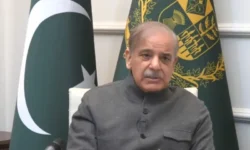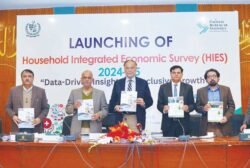The way out of elite capture

Pakistan possesses immense potential, particularly in the realms of solar, wind, and hydropower – with the capacity to generate an impressive 2900 GW of solar power, 340 GW of wind power, and 60 GW of hydropower.
Additionally, it ranks second globally in coal reserves and holds the third spot in terms of its online workforce. Undeniably, this potential is vast, but there exist domains where Pakistan excels on a global scale. For instance, it stands as the third-largest milk producer, the fifth-largest producer of sugarcane and cotton, the sixth-largest producer of mangoes and dates, the eighth-largest producer of wheat, and the twentieth-largest producer of livestock worldwide.
These statistics are primarily within the energy and agriculture sectors, but similar commendable rankings exist across various others. Nevertheless, the harsh reality that confronts us, the ordinary citizens of Pakistan, is the persistent struggle with energy and food inflation. The term ‘we, the ordinary citizens’, is intentionally used here because there is also a select group of powerful and influential individuals within Pakistan that has masterfully exploited its position and resources to manipulate state policies and institutions for personal gain, often at the expense of the majority.
This phenomenon, known as ‘elite capture’, stands as a formidable challenge to human development and social justice in Pakistan, according to esteemed economist Dr Hafiz Pasha. It systematically erodes the foundations of democracy, accountability, and equality. Dr Pasha’s estimations reveal that elite capture annually costs the economy nearly Rs1 trillion, stemming from factors like tax exemptions, concessions, and subsidies enjoyed by these elite groups. Moreover, elite capture skews the allocation of public expenditure, resulting in inadequate investments in crucial human development sectors such as education, healthcare and social protection.
The issue of economic injustice and elite capture in Pakistan has long been diagnosed. In Dr Pasha’s words, “Power, people, and policy are the key drivers of inequality in Pakistan.” The powerful wield their privilege to claim more than their fair share, and people discriminate based on characteristics like gender and class. Their acceptance of often ineffective policies further exacerbates inequality.
The consequences of these inequalities simmer until they reach a tipping point, wherein those affected identify collectively as ‘have-nots’. This is where the tension between an elite minority and a less privileged majority begins to unravel the core social and societal fabric.
The ordinary citizens of Pakistan had endured these inequalities for some time. However, the huge depreciation of the rupee in the last year, exorbitant electricity bills in August, artificial shortages of dollars, soaring sugar prices, and a slew of indirect taxes pushed them to the brink, culminating in protests. Recent months saw Pakistan teeter on the brink, with the potential for social chaos unless tangible initiatives addressed economic injustice.
In a positive turn, the state machinery sprang into action. A comprehensive crackdown targeted electricity theft, dollar hoarding, dollar smuggling, sugar price manipulation, wheat smuggling, and misuse of the Afghan Transit Trade. A few days of assertive political will and the authority of the state brought a semblance of order to the chaos.
Within a week of the campaign against electricity theft, authorities identified over 10 million stolen units of electricity, lodged over 4,000 FIRs, arrested nearly 500 individuals involved in electricity theft, and recovered approximately one billion rupees in lieu of the cost of stolen electricity. Remarkably, law-abiding electricity consumers had been unwittingly paying for this stolen electricity as transmission and distribution losses through their bills.
In the forex market, where consumers were being charged up to Rs340 per dollar due to a severe shortage of greenback, a crackdown on dollar smugglers, hoarders, and unscrupulous foreign exchange companies led to an improvement in the value of the rupee and the availability of dollars. The Intelligence Bureau identified 122 currency smugglers and 40 exchange companies involved in currency rate manipulation. An estimated $30-35 million was being sent to Afghanistan from Pakistan daily, adding pressure to the rupee’s value, already weakened by a current account deficit. With effective measures against currency smuggling, that outflow was also controlled.
The government also launched an extensive effort to curtail the smuggling and hoarding of essential commodities, gradually stabilizing sugar prices and availability. Thousands of tons of sugar hoarded across different districts of Pakistan were recovered in this campaign. Reportedly, 109 sugar smugglers and 14 sugar mills engaged in illicit sugar smuggling to Afghanistan were identified.
To address revenue shortfalls, the government cracked down on the smuggling of Iranian fuel in Pakistan, which was estimated to cost the national exchequer at least Rs225 billion annually. Plans are also in place to combat tax evasion in the tobacco industry, which costs the exchequer Rs240 billion.
Likewise, measures are being devised to halt the misuse of the Afghan Transit Trade Agreement (ATTA), where a significant portion of imports (including tea, tires, synthetic fibre, and electronics) is smuggled back into Pakistan through reverse cargo. The IB identified 63 major tea smugglers and 66 tyre smugglers responsible for billions in revenue losses to the government.
These initiatives are undoubtedly commendable, and the hope is that they will be consistently sustained. However, they alone are insufficient to unlock Pakistan’s tremendous potential. Realizing this potential hinges on dismantling the entrenched elite capture that has plagued Pakistan for decades.
Recall the three ‘Ps’ at the root of inequality: power, people, and policies. The smugglers, hoarders, tax evaders, and energy thieves did not emerge overnight; they represent powerful individuals and lobbies that have been shaping policies in their favour and exploiting the people for decades. Regrettably, this often occurs with the tacit complicity of those who hold policymaking or enforcement roles.
For instance, in a recent revelation, 248 officers in the power sector were identified as “officers of jet-black integrity” by the power secretary. They have been called back from the field and posted in the head office. However, mere reassignment to ‘less important positions’ is not a solution. The pertinent question arises: why are disciplinary actions not initiated against those who have been aiding power theft, currency and commodity hoarding, and smuggling? The question also arises as to why the government machinery at the highest level entrusted to oversee these malpractices turned a blind eye for decades.
Unfortunately, successive governments – whether civilian, hybrid, or military – have consistently failed to take meaningful action against elite capture. This failure is rooted in vested interests, lack of political will, and a fear of disrupting the status quo. The consequence of this chronic inaction is a trust deficit between the people and the government. This trust deficit can be remedied if the state, following the dismantling of the power-policy nexus, embarks on institutional and policy reforms aimed at fostering economic justice. Hope this dream comes true in our lifetime.
The writer heads the Sustainable Development Policy Institute. He tweets/posts @abidsuleri





